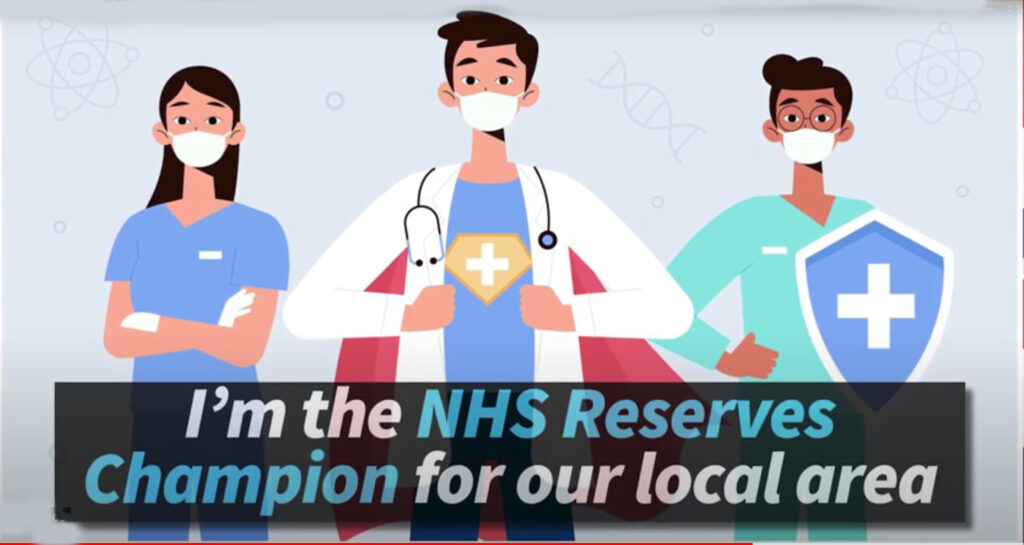As deliveries of Pfizer/BioNTech’s covid-19 vaccine arrive in the UK, concerns about who should get it first – and whether it’s even going to work – ignored an equally crucial question: is the infrastructure actually in place to administer it?
That question is ostensibly the initial impetus for a Bill introduced by Havant MP and Conservative Party vice-chair Alan Mak in the House of Commons last week, with minimal pre-publicity.
Snappily titled the National Health Service Reserve Staff Bill, and backed by health secretary Matt Hancock and Commons health select committee chair Jeremy Hunt, Mak’s proposed legislation aims to use a newly created body of ‘reservists’, in the first instance at least, to boost distribution of the new vaccine.
The move could easily be dismissed as a simple rebrand for the 80,000-strong ranks of volunteers that have long augmented the work of salaried NHS staff, particularly since the introduction of the NHS Volunteer Responders initiative, launched by the Royal Voluntary Service earlier this year as the pandemic took hold.
Mak’s Commons statement did indeed hint at this sort of market repositioning when he talked of a new NHS “brand”, comprising a permanent “uniformed standing reserve of clinical and non-clinical volunteers” who will support hospitals, GP surgeries and pharmacies, but he suggested his proposals were both new and long overdue.
“The NHS is the only one of our major emergency services not to have a formal reservist structure,” he claimed, unfortunately neglecting to mention that – unlike those signing up for duty in the equivalent armed forces, fire and rescue service and police special constabulary reserve bodies – it seems those volunteering as an NHS reservist would receive no remuneration under the terms of the new Bill.
And although Mak was at pains to reassure health professionals that “NHS reservists will supplement, not supplant, any roles currently undertaken by NHS employees,” the idea of a permanent, post-covid role in the health service for this new army of volunteers is a potentially negative development, especially while chronic shortages of nursing staff are allowed to persist.
Research by the Nuffield Trust shows that within ten years the NHS will have a shortfall of 108,000 full-time equivalent nurses, and the Royal College of Nursing is already warning that current nursing shortages across the NHS – there are around 40,000 registered nursing vacancies in England – could lead to staff burnout and risk patient safety this winter.
Health service union Unison’s head of health Sara Gorton told Personnel Today that, “Establishing a permanent volunteer register would be a good idea, but it’s not the most pressing concern. Near the top of the government’s list must be a proper plan of action to fill the 100,000-plus vacancies across the NHS. This would help both patients and staff alike.”
But even though the health service’s latest recruitment campaign – We Are The NHS – has just launched to try and make up for the staffing shortfall, and chancellor Rishi Sunak is excluding NHS nurses and doctors from a public sector pay freeze next year, it looks like nothing is going to stop the roll-out of the Havant MP’s plan to permanently embed the role of reservists in the health service.
Despite the fact that the Bill will not receive a second reading in the Commons until next March, the health secretary has already agreed to launch a pilot scheme introducing its proposals across all seven NHS England regions. And Mak – on his website – is already proposing that the reservist idea “could be expanded into the social care sector in the longer-term”.
The low-key introduction of Mak’s Bill may have attracted little media interest so far, but its impact, if adopted, could have far-reaching implications, undermining the status and professionalism of those working in the NHS.
Dear Reader,
If you like our content please support our campaigning journalism to protect health care for all.
Our goal is to inform people, hold our politicians to account and help to build change through evidence based ideas.
Everyone should have access to comprehensive healthcare, but our NHS needs support. You can help us to continue to counter bad policy, battle neglect of the NHS and correct dangerous mis-infomation.
Supporters of the NHS are crucial in sustaining our health service and with your help we will be able to engage more people in securing its future.
Please donate to help support our campaigning NHS research and journalism.


